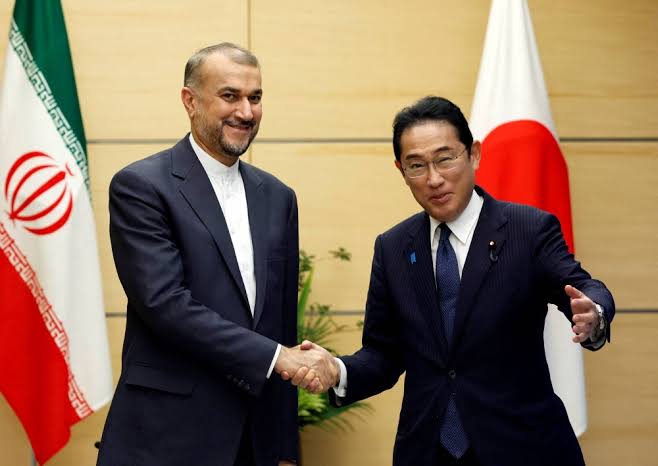Iran to boost ties with Japan

Iran’s new foreign minister, Seyed Abbas Araghchi, said that his ministry will boost ties between Tehran and Tokyo in all aspects, based on a comprehensive roadmap built on his deep knowledge of Japan, and will cooperate with Tokyo to address the regional crisis jointly.
“I know the capacity and capabilities of Japan. Japan can be more important in Iran’s energy, oil, and economy section,” the former ambassador to Japan told Kyodo News, giving his first exclusive interview after being approved by the Iranian parliament on Wednesday to serve as foreign minister for the next four years.
Iran will welcome Japanese companies interested in working in the oil and energy sector, the minister said, adding that Japan can return to Iran’s oil fields and contribute to expanding its oil production.
Due to hundreds of unilateral sanctions on Iran’s economy, including banking and trade, imposed by the U.S. government in the past decade to curb Iran’s nuclear activities, Japan had to abandon the Iranian market.
Araghchi believes that Iran and Japan, with their distinct yet complementary capabilities, hold immense potential for forging a mutually beneficial and stabilizing partnership across Asia.
“In this light, expanding economic and trade ties between Iran and Japan emerges as a natural and logical choice,” he said. “We anticipate that this collaboration will continue to flourish on a path of fruitful cooperation.”
On Iran’s foreign policy priorities going forward, Araghchi said the new government has designated cultivating relations with East Asia a pivotal objective, and emphasized “Japan’s prominent position” in this context.
Explaining his strategy to boost ties with Japan while U.S. sanctions impede Iran’s ability to have normal relations with the world, the foreign minister said that in the face of global uncertainties and rapid transformations, it is imperative to unlock new avenues for economic and trade cooperation between Iran and Japan.
“We must transcend obstacles hindering our mutual interests and prioritize our vital needs. By comprehensively evaluating the current landscape, we can forge a constructive partnership to drive both nations’ progress and prosperity,” he said.
Regarding Japan’s initiatives to address the hostility between Tehran and Washington in 2019, Araghchi said that Iran and Japan have nurtured a bond characterized by friendship, mutual understanding, respect and trust. The leadership of both nations appreciates this unwavering foundation.
“It enables Iran and Japan to jointly address global and regional challenges with a shared spirit of constructiveness and optimism. I would say there is always a space for contributing initiatives,” he said.
Araghchi, known for his friendly ties with Japan, was ambassador to the country from 2008 to 2011. He played a significant role when the late Japanese Prime Minister Shinzo Abe visited Tehran in 2019 to mediate between the United States and Iran, conveying a message from then U.S. President Donald Trump to Iranian Supreme Leader Ayatollah Ali Khamenei.
The foreign minister explained that as a crucial step toward lifting the sanctions on Iran’s economy and returning it to normal trade relations in the international community, Iran’s Foreign Ministry will seek to manage tensions with Washington and rebuild ties with European countries, but only if they abandon their “hostile approach” while aiming to revive the 2015 nuclear deal and lift sanctions.
“In my foreign policy address to the Islamic Consultative Assembly, I highlighted the crucial objective of lifting sanctions, particularly unilateral ones, through earnest, focused, and time-bound negotiations while upholding the nation’s fundamental principles,” the foreign minister said.
Iran struck a landmark nuclear pact in 2015 with six major powers — Britain, China, France, Germany, Russia and the United States.
However, Trump criticized the deal as flawed and pulled the United States out of it in May 2018. Iran countered the U.S. move by increasing its nuclear activities beyond the limits set in the deal.
Araghchi, a veteran diplomat who has also served as ambassador to Finland and Estonia, played a vital role in finalizing the 2015 nuclear deal as Iran’s deputy foreign minister and senior negotiator.
In 2021, then President Hassan Rouhani appointed him as Iran’s chief negotiator to run talks aimed at reviving the nuclear deal, formally known as the Joint Comprehensive Plan of Action, but the effort remains incomplete due to the presidential election and government change in Iran.




